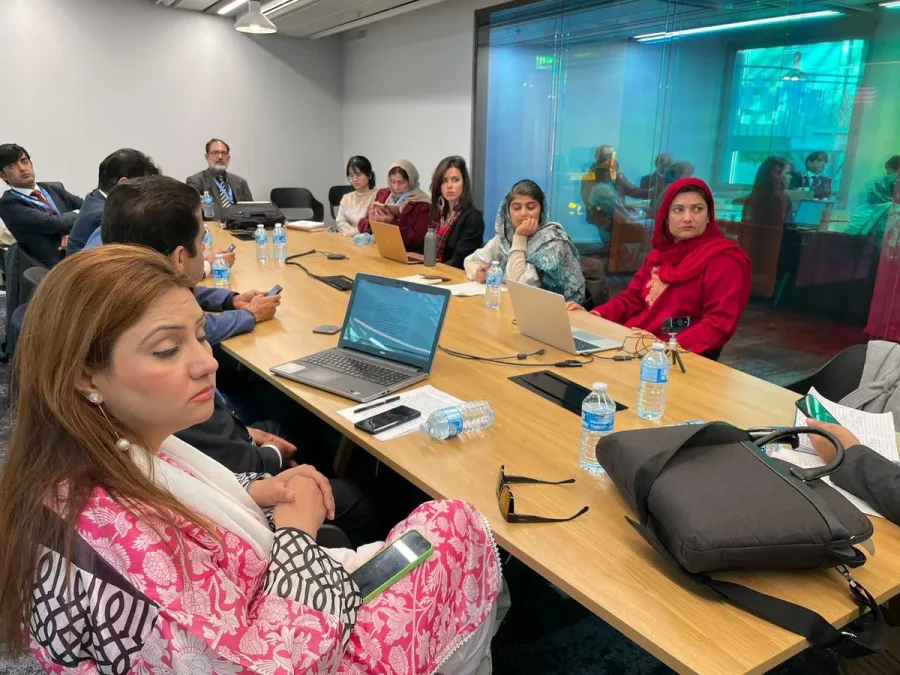In Geneva, speakers at a seminar held on the sidelines of the 52nd session of the United Nations Human Right Council (UNHRC) have said that the insidious land-grabbing campaign and dislodging common Kashmiris from their properties is a part of the Indian government’s settler colonialism policy to reduce Kashmirs to second class citizens in their own homeland.
According to Kashmir Media Service, the seminar “Indian settler colonialism and great land grab in Indian occupied Kashmir”, was attended and addressed by renowned human rights activists, international law experts and representatives of different rights organizations hailing from different parts of the world, including Robert Fantina, writer and human rights activist from Canada, Ms Marry Scully, rights activists from US, Syed Muhammad Ali, security and international relations expert from Pakistan, Hassan Bana, Kashmiri representative, Dr Saira Shah, assistant prof, Mirpur University of Science and Technology, Ahmed Qurashi, the renowned journalist, while Dr. Waleed Rasool, moderated the event .
Highlighting the different dimensions of the Indian settler colonialism policy, the speakers, while expressing their grave concerns, stated that after abrogating article 370 and 35A, the Modi government has launched a double-edged onslaught to dis-empower the indigenous population both politically and economically.
They said that under a well-thought-out policy, the majority community, which happened to be Muslims, was being marginalized and dispossessed from their lands.
Referring to the massive land grab campaign going on in IIOJK, they pointed out that millions of acres of land, including agriculture and forest land, was already under the illegal occupation of the Indian army and paramilitary forces.
They observed that the change in the constitutional status of the territory was purposely made to grant the Indian government the much needed political and legal leverage to bring material change in the region through the wholesale extermination of the indigenous populations.
Underlining the Modi government’s dangerous designs, the speakers regrettably noted that the current dispensation in India viewed settler colonialism as a final solution to the Kashmir dispute.
“The most worrying change has been the amendments to the Jammu and Kashmir Development Act that gave sweeping powers to the Indian armed forces”, they said, adding by virtue of this law the Indian army can take possession of any land of choice in J&K after declaring it “strategic.”
Further changes to land laws, which dealt exclusively with the sale and purchase of land, they said, have resulted in the further marginalization of Kashmiris.
The speakers also voiced their concern over the ongoing house demolishing drive, land eviction, confiscation and attachment of civilians’ properties by the Indian authorities.
They said that on one hand, the Indian government was hell bent on depriving Kashmiris of their possessions, while on the other, the political marginalization of Kashmiris continued unabated.
They said that granting voting rights to non-state subjects was yet another atrocious assault on the political identity of the Kashmiri people. The move, they added, would drastically change the region’s political landscape besides influencing the outcome of election results in the future.
The speakers said that it was quite unfortunate that the so-called state machinery in the Indian-occupied Jammu and Kashmir was working on the whims and fantasies of the governor whose status in Kashmir was not more than an agent of the BJP government.
Referring to a regime of new laws enforced in the region, they said that these laws were in contravention of UN Security Council resolutions on Jammu and Kashmir, international human rights, humanitarian law, 4th Geneva Conventions and India’s international obligations.—KMS










